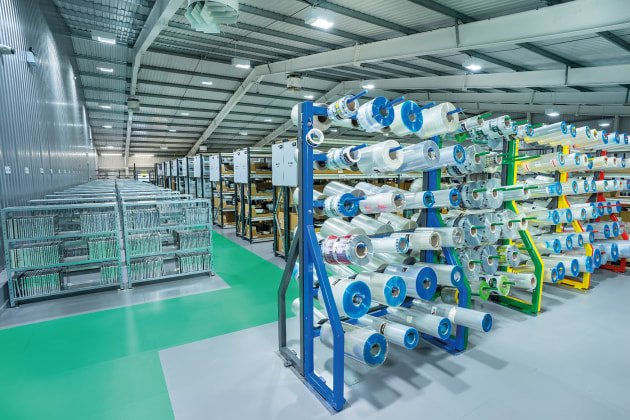Tray sealing specialist Proseal says it is perfectly positioned to help food producers explore options for alternative packaging materials, with the company working closely with both tray and film suppliers, to stay ahead of the demand from retailers and consumers for environmentally-friendly solutions.
Due to all of this work, the company now has many alternative formats available in the market, in particular, Proseal’s entire range of tray sealing machines, which already have the capabilities to handle different materials, such as board and pulp, with no modifications necessary.
According to Proseal, this enables food manufacturers to switch more easily to new pack formats without an additional and costly investment.
An innovation in this space includes Proseal’s ProPosition, which automatically identifies the best position for trays, to ensure perfect alignment every time.
Its advanced technology provides food manufacturers and processors with a simple one-step tool-set-up and removes the time consuming and potentially wasteful process of running test trays.
The Test Kitchen facilities are also available to allow suppliers of alternative packaging materials to carry out extensive trials.

This ensures that any potential tray design is conducive to tray sealing, able to deliver the required levels of product protection and extend shelf-life, and that on-shelf presentation can be successfully commercialised.
In addition, Proseal is the tray sealing partner for the Halopack tray, which is the first fully gas-tight cardboard Modified Atmosphere Packaging (MAP) tray. Produced with renewable or recycled cardboard, Halopack combines a strong environmental profile with high barrier properties that maintain product quality and extend shelf-life.
The patented design is fully sealable for efficient in-line production and Proseal can supply a machine that erects and assembles the packs.
At the same time, Proseal acknowledges the important role that plastic packaging plays in the food sector, particularly its ability to help reduce food waste, which is widely acknowledged as a significant environmental problem.
Protein producers have now switched from PE-lined PP trays to mono APET, which can be recycled.
Proseal believes the arguments over the sustainability of plastic versus cardboard for trays will continue for years to come, and that there is room for both materials in the market.
Recycling and reusing both types of packaging has proved to be the most effective way to minimise carbon footprint and protect the environment.
The adoption of top sealing instead of clamshell and clip-on lids in the soft fruit sector, for example, reduces packaging materials by as much as 45 per cent, according to Proseal, which equates to a saving of 10 tonnes of plastic for every one million trays that are top sealed.
Proseal says similarly, it can assist tray manufacturers in the development of lighter weight trays that still have the strength and robustness to produce tight, high-quality seals in its tray sealers.
“Environmental concerns are becoming an increasingly important part of consumers’ food purchasing decisions, but they are still seeking quality and freshness from their products,” says Tony Burgess, sales director of Proseal.
“Our development work is focused on ensuring that new pack formats remain functional and fit-for-purpose and do not compromise on protection or shelf-life, while still delivering sustainability benefits.”
Proseal is part of the JBT family, and together, they remain committed to continually supporting customers’ needs.






